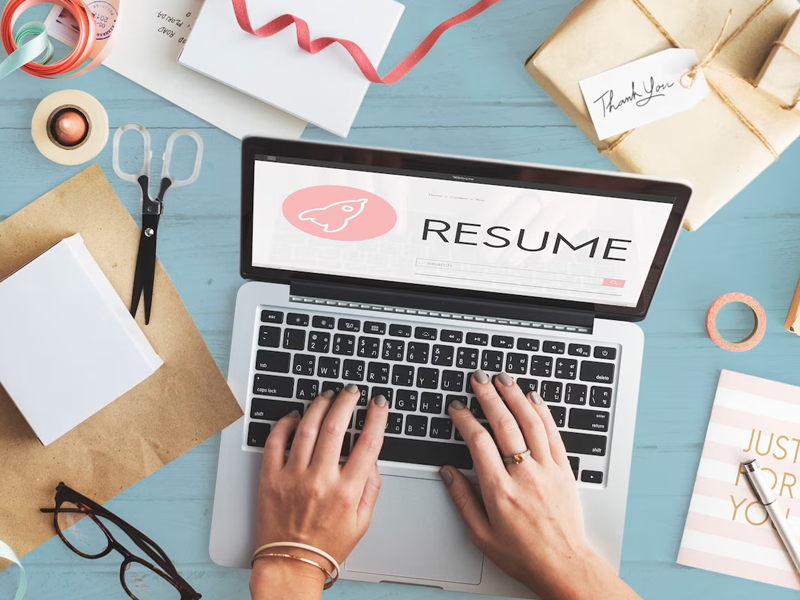
Importance of Interview Preparation for Freshers
Proper preparation helps you stand out from other candidates. Interviews are competitive.
Strategies to Prepare for an Interview as a Fresher
This section discusses some key strategies that can help fresher applicants get interview-ready. From researching about company to conducting mock interviews, focusing on the right preparation techniques can make a difference. Following are some of the top strategies that freshers must adopt to crack the Interview process.
Research the Company
One of the most important things a fresher can do to prepare for an interview is to research the company they are applying to. Spending time to understand the company, its work culture, products, services and competitors shows the interviewer that the candidate is genuinely interested in the role. Freshers should look up the company's website and read through their 'About Us' and 'Careers' sections. Knowledge about the company's mission, vision, history and recent achievements impresses interviewers.
Freshers can also check industry reports and news articles about the company. Learning basic financials like revenue, profits and major clients gives fresher candidates confidence during the interview. Coming prepared with questions related to the company and role shows enthusiasm. Thorough company research gives freshers an edge over others by allowing them to clearly connect why they want to contribute to the organization.
Understand the Job Description
After researching about the company, a fresher should understand the job description thoroughly. Freshers should carefully study the job requirements, roles, responsibilities and skills listed for the position they have applied for. Making notes of the key responsibilities and skills helps fresher candidates focus their preparation.
Understanding the day-to-day tasks and deliverables of the job allows candidates to gauge their suitability for the role. It also enables them to clearly articulate during the interview how their education, skills and experience make them a strong fit for the position. Candidates need to analyze where they meet the job requirements and how they can contribute based on the description. Being able to give specific examples of how they can handle tasks listed is very impressive for interviewers.
Review the Resume
As a fresher preparing for job interviews, having a strong resume is crucial. Your resume is often the first impression you make, so you want it to stand out. Also include relevant coursework, projects, or research you did in college that relates to the job. Any internships, volunteer work, or extracurricular activities are great to include too. Use keywords from the job description throughout your resume. Proofread for spelling and grammar errors.
Keep it concise, well-organized and easy to skim. Use a simple, professional format. Finally, tailor each resume you send out for every job application. Match your experience and skills to what each employer is looking for in their ideal candidate. With a polished, customized resume, you'll make a strong first impression.
Practice Common Interview Questions
One of the best ways to prepare for a job interview as a fresher is to practice answering common interview questions. Make a list of questions you think you'll be asked, like "Tell me about yourself" or "What are your strengths and weaknesses?" Then, practice answering them out loud. Prepare clear and concise responses highlighting your qualifications and fit for the role. Think of examples and stories you can give to back up your answers. Also anticipate what questions may be asked about your resume, education, or skills.
Practice explaining any gaps, challenges, or shortcomings positively. Look up sample questions online for the type of job and industry. The more you practice, the more confident and comfortable you'll feel answering questions during the actual interview. With preparation, you can go into your interviews ready to impress hiring managers with smooth and thoughtful responses.
Behavioural Interview Preparation
Many interviews today use behavioural questions, which ask about how you've handled situations in the past. To prepare, look up common behavioural questions and reflect on your own experiences. Identify three or four stories you can use to demonstrate times you showed leadership, overcame a challenge, solved a problem, worked in a team, or exhibited other desirable skills. Prepare clear stories with context, actions you took, and results.
Avoid rambling or negative language. If you're light on relevant experience, you can use examples from school, volunteering, sports, or other activities. Just connect them to the role you're interviewing for. Practicing your storytelling is key to nailing behavioural interview questions. When you can skilfully share real examples of how you've successfully used your abilities, you'll prove you have what the hiring manager is looking for in their new recruit.
Technical Interview Preparation
As a fresher with little or no work experience, preparing well for the technical part of the interview is very important. You need to brush up your concepts in the subjects that are relevant to the profile you are applying for such as data structures, algorithms, programming languages etc. Practice coding questions on these topics on websites like HackerRank or LeetCode to improve your problem-solving skills. Focus on questions that are commonly asked in interviews like array problems, string manipulation, searching and sorting algorithms. Learn about system design topics too if the role demands knowledge of databases, operating systems or cloud computing.
Make sure you understand concepts thoroughly rather than just mugging up textbook answers. Discuss preparation progress with peers and clear doubts. On the day of the interview, be confident while explaining your thought process and coding the solution within the allotted time even if you take some time to think. Good technical preparation will go a long way in making a good first impression.
Mock Interviews and Feedback
Mock interviews are an essential part of preparing for an actual job interview. It provides freshers an opportunity to practice their communication skills as well as gain experience in responding to interview questions. You should schedule mock interviews with experienced professionals like seniors, alumni, interview coaches or teachers.
During a mock interview, dress professionally as you would for a real interview. The interviewer will ask you commonly asked questions and also throw some situational or analytical questions. Focus on answering with relevance, structure and examples. Maintain your tone and body language appropriately.
Once the mock interview is over, seek honest feedback from the interviewer. They will point out your strengths as well as areas of improvement such as filler words used, confidence level, clarity in responses etc. Discussing feedback helps to identify development gaps which you can then work on. You should practice multiple mock interviews and incorporate the feedback each time to strengthen your interview skills over time.
Conclusion
Preparing thoroughly for interviews takes time and effort but it is truly worthwhile for freshers. Interview preparation helps you learn about company expectations, highlight relevant qualifications convincingly and manage interview nerves. Practicing commonly asked questions through mock interviews and incorporating feedback further strengthens communication skills and confidence levels. Researching extensively about the company and anticipated role requirements shows sincere interest which leaves a lasting positive impression on interviewers.
Following the guidelines mentioned in this blog through a systematic process will equip freshers with a competitive advantage over their peers. With the right preparation approach and positive attitude, freshers can achieve that important first step in their careers by securing a promising job offer.


